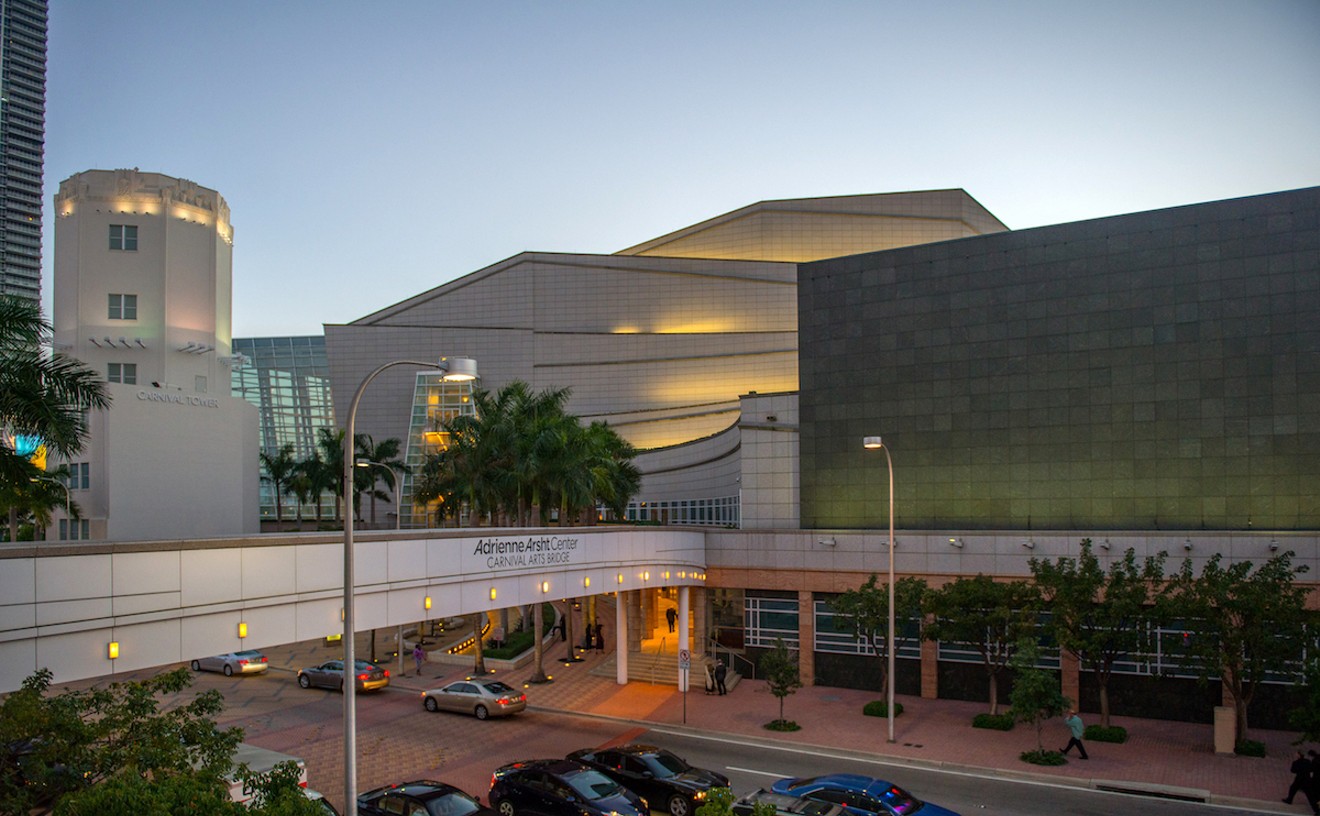Some celebrities achieve fame through talent. Others get famous using their looks. In some cases, mostly in the realm of reality TV, a proclivity for hair-pulling and face-slapping will secure your place in Hollywood infamy. The Real Housewives of Miami's Elsa Patton has done none of those things. Instead, she's won the hearts of Bravo-watching America using the tools at her disposal: botched facial plastic surgery, an endless supply of white wine, and the sassy attitude that comes from being a Cuban woman of a certain age who thinks she's a bit psychic. Into the world of artificial luxury portrayed on The Real Housewives of Miami, Patton injects the bizarre reality of the Magic City. She's had a bad nip/tuck; plenty of Miami women can relate. She believes she's a seer; that's some spooky voodoo shit right there. She's even launched her own Cuban coffee truck. Could she be any more Miami? That's the unlikely magic of Elsa Patton: Her face may be plastic, but when it comes to representing Miami, she's as real as it gets. On reality TV, anyway.
Best Actress
Erin Joy Schmidt and Barbara Bradshaw

Erin Joy Schmidt and Barbara Bradshaw played off each other in a magnificent and effortless symbiosis, with Schmidt as a Republican power couple's daughter — a liberal, once-successful novelist turned damaged soul whose proposed memoir will unburden sensitive family history. Bradshaw played her mother, a sharp-tongued intellectual mind tethered to selfish right-wing beliefs and an absolute need to keep her daughter's literary revelations locked and buried. These political and filial polarities came to a head in a number of epic verbal spats that were as difficult to sit through in their wincing verisimilitude as they were compelling in their train-wreck schadenfreude. Schmidt was heartbreaking as she was reduced to sniveling tears, and Bradshaw struck the great matriarchal balance of tender and monstrous. Director David Arisco positioned his supporting players on the edge of the frame while these two heavyweights duked it out in the center, and they essentially became, like us, rapt spectators to the spectacle.
- 280 Miracle Mile, Coral Gables, 33134 Map
- 305-444-9293
- actorsplayhouse.org
Best Actor
Matthew William Chizever
Matthew William Chizever showed his range of talents this past year in roles in plays as varied as My Fair Lady and Venus in Fur, but the multiple personality disorder that was The Turn of the Screw was a veritable master class in classic archetypes — five parts so distinct from one another in make, model, and year that it's hard to believe they were driven by the same man. For the part of Uncle, a London bachelor, he oozed sexual tension and casual seduction toward his skilled castmate Katherine Amadeo. He soon changed everything, while seemingly changing nothing, to transform into an elderly female housemaid who knows more than she lets on. Later, he assumed the form of a troubled 10-year-old boy. From stooping to kneeling, from British accents to Irish ones, Chizever subtly transitioned through this eerie ghost story like an implacable shape-shifting specter, haunting the floorboards with the many voices in his head. He even created 90 percent of the show's atmospheric sound effects, which were critical to its success.
- 11300 NE Second Ave., Miami Shores, 33161 Map
- www.barry.edu/fine-arts/
Best Play
Other Desert Cities

If separating the play from the production is the job of a regional theater critic, it's a requirement that becomes ever so difficult when the work in question is a piece like Jon Robin Baitz's Other Desert Cities. This is a play with such cracklingly good and bracingly realistic dialogue that it can mesmerize even the most nitpicky critic with its words, engrossing the audience so thoroughly with its content that the form is virtually invisible. But this wonderful Actors' Playhouse production had its cake and ate it too, perfectly honoring Baitz's literate exploration of family secrets and political schisms while showcasing a diverse ensemble of powerhouse performances. At the heart of the production were Erin Joy Schmidt and Barbara Bradshaw as the contentious mother and daughter, unspooling decades of division in front of our eyes. Antonio Amadeo and Lourelene Snedeker played their supporting roles with perfect aplomb, hitting tragicomic notes with the right balance of surface warmth and closeted despair, controlled with fluid precision by director David Arisco. The elegant, artistically canted set design and nearly invisible lighting cues further enhanced this past year's most enriching theatrical experience.
- 280 Miracle Mile, Coral Gables, 33134 Map
- 305-444-9293
- actorsplayhouse.org
Best Theater Company
Mad Cat Theatre Company

Under the "History" tab on madcattheatre.org, the phrase "we are a theatre company for people looking for an alternative to your mom and pop's theatre company" jumps out at anyone who has ever attended a Mad Cat production. Founded by actor, director, writer, and all-around mad genius Paul Tei, Mad Cat produces theater that is everything good theater should be: witty, intelligent, daring, and thought-provoking. Audience members never know what to expect — you might be handed a bottle of barbecue sauce by an actor mid-monologue or sprayed with a giant water gun by a 200-pound "cat." You never know, and that's the point. Just when you think you've figured out you're watching a solo rant disguised as theater, four cast members bust out into a synchronized modern dance routine. During a Mad Cat production, there might be silly moments, smart moments, and even dark moments, but never a dull moment.
- 9806 NE Second Ave., Miami Shores, 33138 Map
- 305-751-9550
- mtcmiami.org
Best Supporting Actor
Ryan George
Tarell Alvin McCraney's condensed edit of Shakespeare's masterpiece Hamlet received its share of respectful criticism, namely that its 85-minute reduction didn't capture all the nuance and brilliance of the unabridged text. Fair enough, and it's also fair to say that some characters, such as Polonius and Gertrude, arguably received short shrift, failing to emotionally register on the level they should have. Which is why Ryan George's performances stand out as much as they do: Even in this self-described "action movie" version of Hamlet, George generated a commanding presence, crafting two contradictory characters in multiple dimensions. As Laertes, he was a steely-eyed, smoldering presence whose deep wounds resonated at a deliberate pace in an otherwise speedy framework. As Rosencrantz, he enjoyed some lithe slapstick and commedia dell'arte-style improv with partner Arielle Hoffman as Guildenstern. George conveyed both tragedy and comedy, channeling both sides of Shakespeare's — and McCraney's — gifts.
- 1200 Anastasia Ave., Coral Gables, 33134 Map
- 305-446-1116
- www.gablestage.org
Best Supporting Actress
Jade Wheeler
It's tempting to grant this award to "the women of Ruined," because the production was such a vital showcase for talented, dynamic women of color, whose extraordinary sum could not be realized without each significant part. But if forced to single out one of them, we give the honor to Jade Wheeler, an actress best known for her work in the Washington, D.C. area whose regional breakthroughs at GableStage have been revelatory. Surely, nobody who witnessed her performance as a confident, scheming, buttoned-down legal aide in David Mamet's Race last summer could have anticipated the battered shell of a character she would play next in Ruined. As Sophie, she etched the show's most unforgettable portrait — the "ruined" woman of the title dispatched to Mama Nadi's (Lela Elam) wartime brothel and forced into service despite the fact that a bayonet had mutilated her vagina. The entire way Wheeler carried herself — from her limping gait to the careful combination of squeamishness and terror in her eyes whenever a brutish guerrilla pawed her — was of a heartbreaking piece, performed with tensile poise and an intelligent subtlety.
- 1200 Anastasia Ave., Coral Gables, 33134 Map
- 305-446-1116
- www.gablestage.org
Best Ensemble Cast
All New People

Sometimes a production can outstrip and transcend its source material. That's exactly what All New People did, creating something radically different from the show's initial London run — and, most observers agree, far better. Director Stuart Meltzer optioned this comedy from Scrubs creator Zach Braff hot off the presses and ran with it full bore, taking a script leaden with sitcommy archness and turning it into a caustically hilarious and endearing redemption song, thanks in large part to a cast so flawless it should be touring this show nationwide. Amy McKenna's manic, quirky, drug-induced real estate agent, Todd Allen Durkin's sexist fireman and erstwhile thespian, Betsy Graver's simple-minded hooker and aspiring musician, and Nicholas Richberg's suicidal straight man thrust into an impromptu loony bin had the kind of chemistry most directors hope for every time and enjoy only sporadically. Each of them displayed expert timing and the ability to reveal new depths of their characters with surprising nuance and conviction.
- 1300 Biscayne Blvd., Miami, 33132 Map
- 305-949-6722
- arshtcenter.org
Best Director
Joseph Adler
To say that Ruined — Lynn Nottage's searing drama about life in a shady bar during one of the Republic of Congo's many civil wars — contains a multitude of moving parts is an understatement. On a superlative scenic design that looked twice the size it actually was, Joseph Adler met and exceeded the requirements of this ambitious play during its GableStage production. He created a perpetual motion machine of busy bustle across the beautifully ramshackle sprawl, from the musicians performing onstage right to the pool tables and small outdoor setting on stage left. By loading the show with action on all sides, he successfully oversaw the illusion of real life — music and dance, laughter and leisure, dread and danger — under a soundtrack of machine-gun fire and falling bombs. But this masterful direction excelled in the micro as well as the macro, taking great care to inspire intense performances we've never seen before from the largest cast ever assembled at GableStage, including a top-form Lela Elam as the morally ambiguous whorehouse proprietor.
- 1200 Anastasia Ave., Coral Gables, 33134 Map
- 305-446-1116
- www.gablestage.org
Best Production from an Out-of-town Company
Death and Harry Houdini

The crux of Death and Harry Houdini is the titular magician's lifelong battle with death — his perpetual desire to cheat his demise. But beyond that, nothing about the story of this visiting production from the House Theatre of Chicago sticks out. The dialogue and thinly explored romance certainly won't win any awards. But what does impress is the spectacle. The House Theatre specializes in stylized, innovative theatrical experiments, where sound and design elements break new ground. Death and Harry Houdini, which launched the company in 2001 and is continually revived by popular demand, epitomizes its MO. It was a genuine magic show as much as a play, with Dennis Watkins, as Houdini, performing both close-up tricks and ambitious feats, from walking barefoot on a stream of broken glass to escaping a locked straitjacket, swallowing razor blades, and dangling in a booth of water. Video projection, smoke machines, stilt walkers, inspired choreography, colorful costumes, and fun audience participation further cemented an unforgettable sensorial experience.
- 1300 Biscayne Blvd., Miami, 33132 Map
- 305-949-6722
- arshtcenter.org





